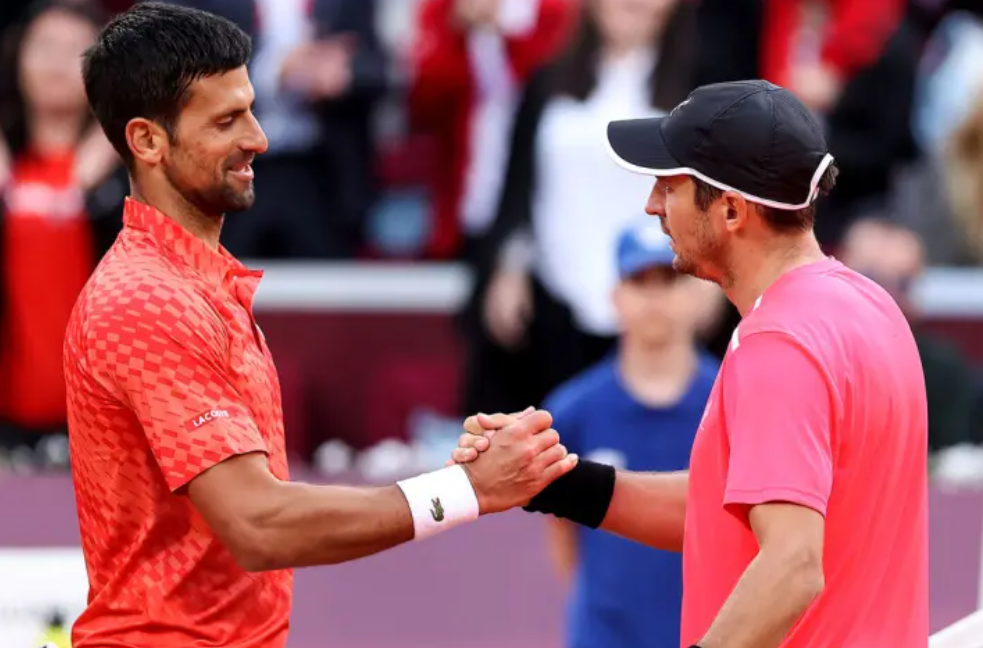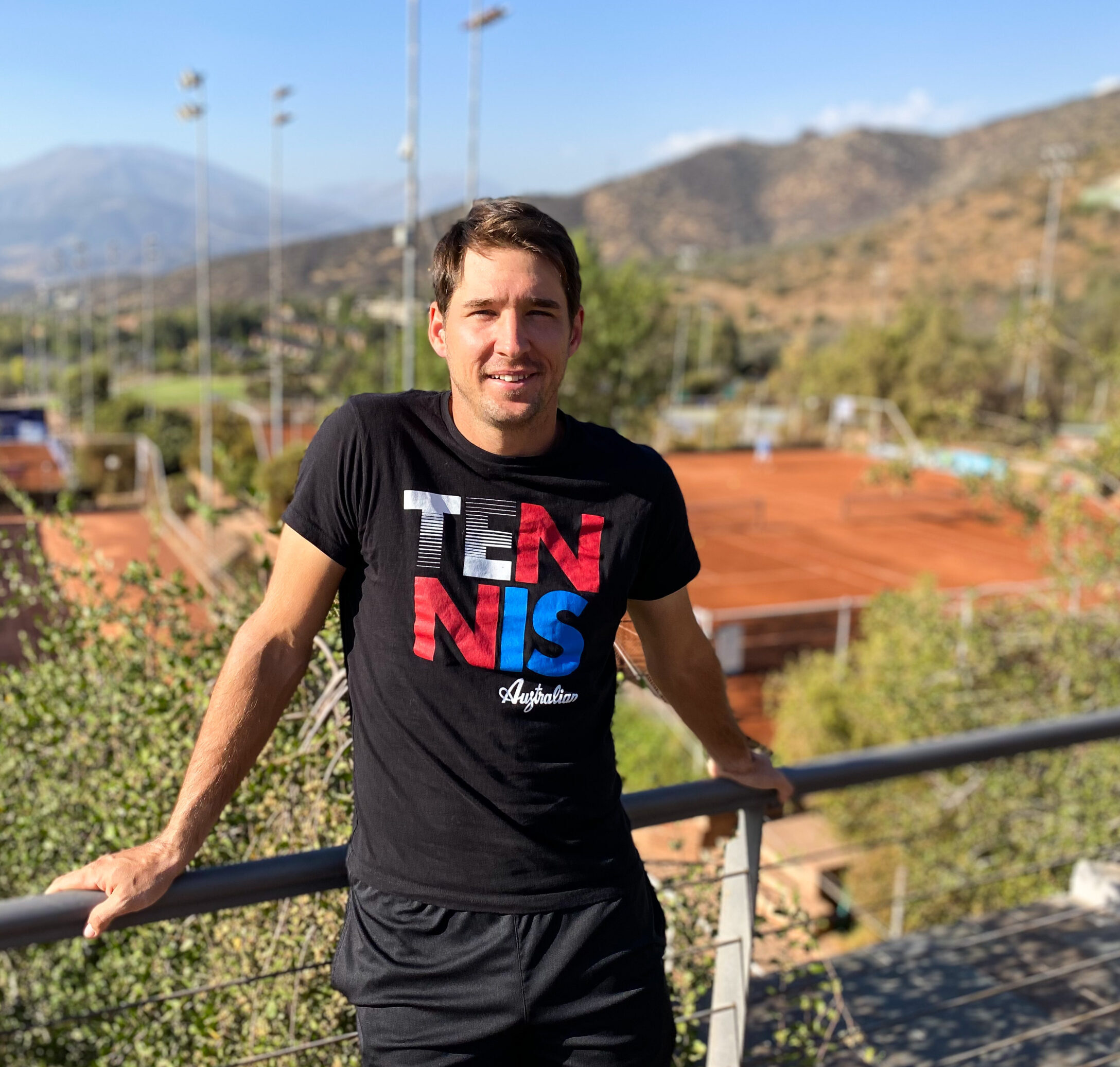From the most succesful moment of his career, to a dark journey inside his head. The story of Dusan Lajovic is finally getting back to a happy zone: “I got into a loop of being mentally in a bad place. I had depressing feelings, anxiety and OCD. I’m finally staring to get on my feet again”.
After a storm that lasted more than a year, Lajovic lived one of the sweetest weeks of his carrer. He won the Srpska Open, his second ATP title. He did it in Banja Luka, in front of his home crowd, with victories over his friend Novak Djokovic, and Andrey Rublev in the final.
In this interview with CLAY, made at the foot of the Andes Mountains during his participation in the Chile Open, the Serb opens up his heart and talks about what is no longer a taboo for him: “I should definitely have started therapy many years ago. But by that time, the social environment regarding this was very different in Serbia. I just didn’t know how much would help me”.
32-year-old Lajovic is full of praise for Alcaraz, who he believes is on track to be one of the best in history. “Everywhere he goes, he is the guy that everybody wants to beat,” says who has faced the young Spanish four times, with four defeats.
– In 2019 you reached the Montecarlo final and your highest ranking. How’s the journey been since then?
– Since that time I won the ATP Cup and my first ATP title. I was finally reaching my full potential when COVID hit. Unfortunatly in the wrong time. I don’t think there’s a good time for the pandemic to start, but if we are talking about my career I was on my peak when all of these happened. For the first time in 15 years I stayed at home longer than a couple of weeks. I thought I would have issues being in only one place rather than traveling. But I was feeling really happy being at home, apart for the things that were making us very unhappy and insecure. I enjoyed the peace.
– How was getting back on tour for you?
– Felt like we got back a little bit forced. When back on tour, I felt in conflict with myself because we started playing again without the fans, with all the protocols of traveling, the tests, we had to stay in the rooms and the tennis club. I was feeling that we were playing tennis while people were still suffering around the world. So, why are we playing? Just to keep the business going? I got into a loop of being mentally in a bad place. I felt depressed and not being able to enjoy what I do. I enjoy tennis, but all of this things happening around were making me not feel good about doing my job.
– How long did your mental struggles last?
– Almost a year. It took me a while to get out of this bubble. When the world came back to normal, I started to feel better. Over 2022 I found this new motivation again. But last year was the worst year of all my career, professionally. I had a different set of problems in my private life, also. Now I’m finally starting to get back on my feet again, I’m working really hard every day, physically and mentally. I’m trying to do everything I can to get back to the place I was.
– Tennis is a very individual sport, which might make things more difficult. During your darkest time, what kept you going?
– I’m working a lot now in psychotherapy. I started a couple of months ago because I’ve been dealing with a lot lately, like anxiety, OCD, and depressing feelings. That influenced a lot when I was on the court. In tennis you need to fix all the things to perform well. I’m trying to improve myself.
– How has psychotherapy impacted on you?
– I see this as a therapy, but also as a training as well. Is something I want to do until the end of my life regardless if I’m playing tennis or not. It is so important, especially after all the things the world has gone through. First, you need to accept this kind of things, and then you can get on a journey to fixing them. I’m on that journey now. From difficult situations you can either fall down more, or you can accept and go through that as part of the process, and see the tough situation pass. Find room for growth… and if you find it at the end it will make you a better person. Exactly what is happening to me.
– Opening up publicly about your situation has also helped.
– I’m slowly starting to talk about these things. I think is good. If I feel my personal case can help at least one person, I should speak about it. I want to show to people that there are always solutions. Is gonna be a big part of myself in the future because I’m someone who is very much internal, I overthink a lot, so sometime I could produce anxiety for things that hasn’t happen yet. Not productive in tennis, not in life in general.
– In addition to the general events that brought you down, would you like to talk about those more specific events?
– I’m not ready to talk about those specific private things publicly. I can say that I should definitely have started therapy many years ago. But by that time the social environment regarding this was very different in Serbia. I just didn’t know how much would help me.

– You have played Carlos Alcaraz three times already this year. You haven’t won sets. What are your impressions on him?
– He is probably one of the best competitors out there, apart from the big three and the guys that have been in another level through out the years. He is very close to them in terms how he behaves, what he does on the court. The harder the moment, the more he thrives. He enjoys these moments differently and he lets everything go when the match is tense. That’s why we see so many highlights shots from him when is an important moment of the match. This is what makes him really difficult to play. He is a big fighter and he fights until the last breath, but also he fights the best when is the most important and this is what makes him different from the rest.
– You sound like you think he can become one of the bests in history.
He is already a great player, and I feel he is on that path to be greater. I mean, to be one of the bests. Being so young at the top of the world is probably something that influenced him differently. It is interesting to see that new challenges await him. Last season he just exploded and went up the rankings in one season , which is unreal. Now, everywhere he goes, he is the guy that everybody wants to beat. He needs now to prove he is there, what he is capable of, showing his quality to the players. If he is able to do it this season, I feel he will be on the top for quite a while.
– How does it feel to be a Serbian tennis player in the era of Djokovic?
– We should look that on a positive side. Before Novak, Serbian tennis was really not in a spotlight. We are not a country that had a tradition, I mean we still don’t, but at least now, for the future generations we might have something that is really good. A solid base for the young ones. Is very important for us to use this generation’s legacy. Novak, (Jelena) Jankovic and the rest. What they have done needs to be used in some way, because if we skip a generation without having tradition, might be hard to bring back the same quality.
– Is that all positives, or sometimes you guys feel living under his shade?
– He has given us many positive things. Novak’s example is been enough to learn a lot. Probably when he ends his career, he will continue pushing Serbian tennis a lot. We need infrastructure and a good federation that can support young players. Otherwise, all the weight goes over the families, they risk a lot to help their children to become professional, which is not the healthiest environment, because they could end economically destroyed. The economy of the country is not in a good shape, and we can’t compare to other countries with big tournaments and instirutions. At least we can copy the good things, because we need the good players to grow. Talent is there.
– Serbians will keep caring about tennis after Djokovic retires?
– Tough question. We didn’t have tradition, and people followed football, basketball… tennis was not there. After Novak there will be a a good part of fans that will stick to tennis, but also a big portion might lose interest as they started watching tennis thanks to him.
– As his college, compatriot and friend, how did you live the Australian Open 2022 drama?
– Wasn’t easy. We were there before he arrived, because we were playing ATP Cup. It was difficult to see him struggling, it wasn’t easy for him. It’s hard when things get too political. The situation was very extreme and wasn’t led in the correct way. Luckily that’s part of the past, and we all saw how Novak came back from that tough situation.







